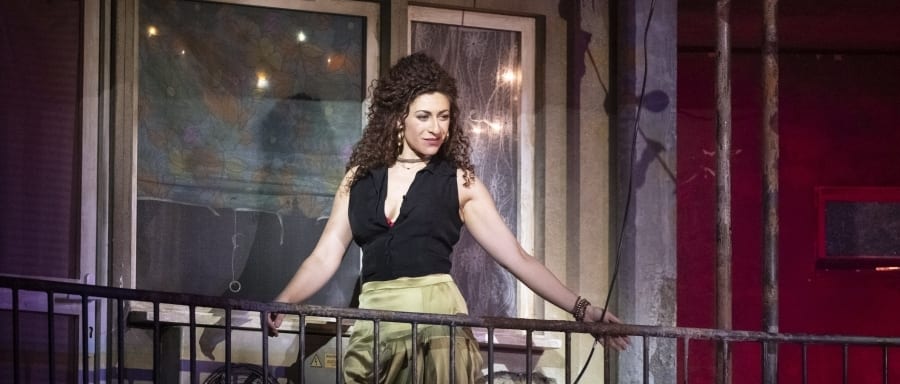This splendid production of Carmen shows off the substantial talents of the Welsh National Opera team at their best. It is an opera that all too often misfires, despite the brilliance of Bizet’s music. It needs a range of things to go right – most importantly, the Carmen has to be a mezzo with both a vocal and a physical presence that makes the story credible, and the chorus has to get really involved whether as soldiers, smugglers, or tobacco factory workers. This WNO production comes within a whisker of getting it all right.
Carmen was first performed in Paris in 1875 to hostile public and critical reaction – only after Bizet’s death did it gather wide acclaim. The subject matter was certainly considered scandalous. The story is of Carmen, the wild and alluring gypsy woman, who falls in love with the soldier Don Jose, then quickly tires of him. She first meets him in a square in Seville where she is about to be hauled off to jail after a knife fight. She persuades him to enable her escape and invites him to join her at a bar on the outskirts of the city for ‘his reward’. He is torn between his lust for Carmen and his reluctance to become a deserter but, in the end, a chance encounter with his lieutenant propels him into joining the smuggler band to which Carmen belongs. Even before Carmen tires of Don Jose, she meets the bullfighter Escamillo and marks him down as a future lover. The final scene is set outside the bullring in Seville where the inevitable showdown between the ill-matched lovers takes place.
The part of Carmen is often described as the ultimate mezzo-soprano role. The performer has to be seductive, sing with power and accuracy, and has to be able to dance. Fortunately Julia Mintzer who has sung the role in America and elsewhere in Europe, meets the three tests with plenty to spare. Whether singing alone, in duets with Don Jose, or in ensembles with her smuggler pals, she sounds marvellous. She does not shy away from portraying the reckless side of Carmen – “free I have lived and free I will die”. Peter Auty doesn’t quite match up as her Don Jose. He has a thrilling tenor voice and shines in the scenes with Micaela, the young woman from his village who tries to lure him back to his duty. But, until the second half of the opera, it is difficult to think of him as the dangerous man who has killed before and who has the charisma to win the heart of the fiery Carmen. Escamillo the bullfighter, strongly sung by Giorgio Caoduro, does by contrast look like a potential partner for Carmen from the moment he makes his baby-kissing entrance into Lillas Pastia’s bar. Micaela, the superb Elin Pritchard, is unusually strong and avoids the timid-maiden-from-the-village cliché that sometimes sucks the life out of the role. She has a glorious soprano voice and makes us believe that she really would risk death in the mountains to call Don Jose back to his home village and his dying mother. The crowd scenes, especially in Pastia’s bar in Act 2 are brilliantly done – the two dancers are mesmerising and the WNO chorus does a great job, looking as if they are really enjoying the party and not just there to sing occasionally.
The action and the costumes are updated to the late twentieth century – maybe the middle of a South American rebellion – and it is guns that the smugglers are shifting. All four scenes are set in front of an imposing three tier crescent apartment building – and defied my expectations by working as well in the mountain scene of Act 3 as in the town square scene of Act 1. No production will ever solve the essential contradictions of the plot – is Carmen a sexual predator who brings about her own downfall or is she a free and liberated woman destroyed by the patriarchy? But this WNO Carmen provides a thrilling version of the drama that does justice to Bizet’s marvellous score.

